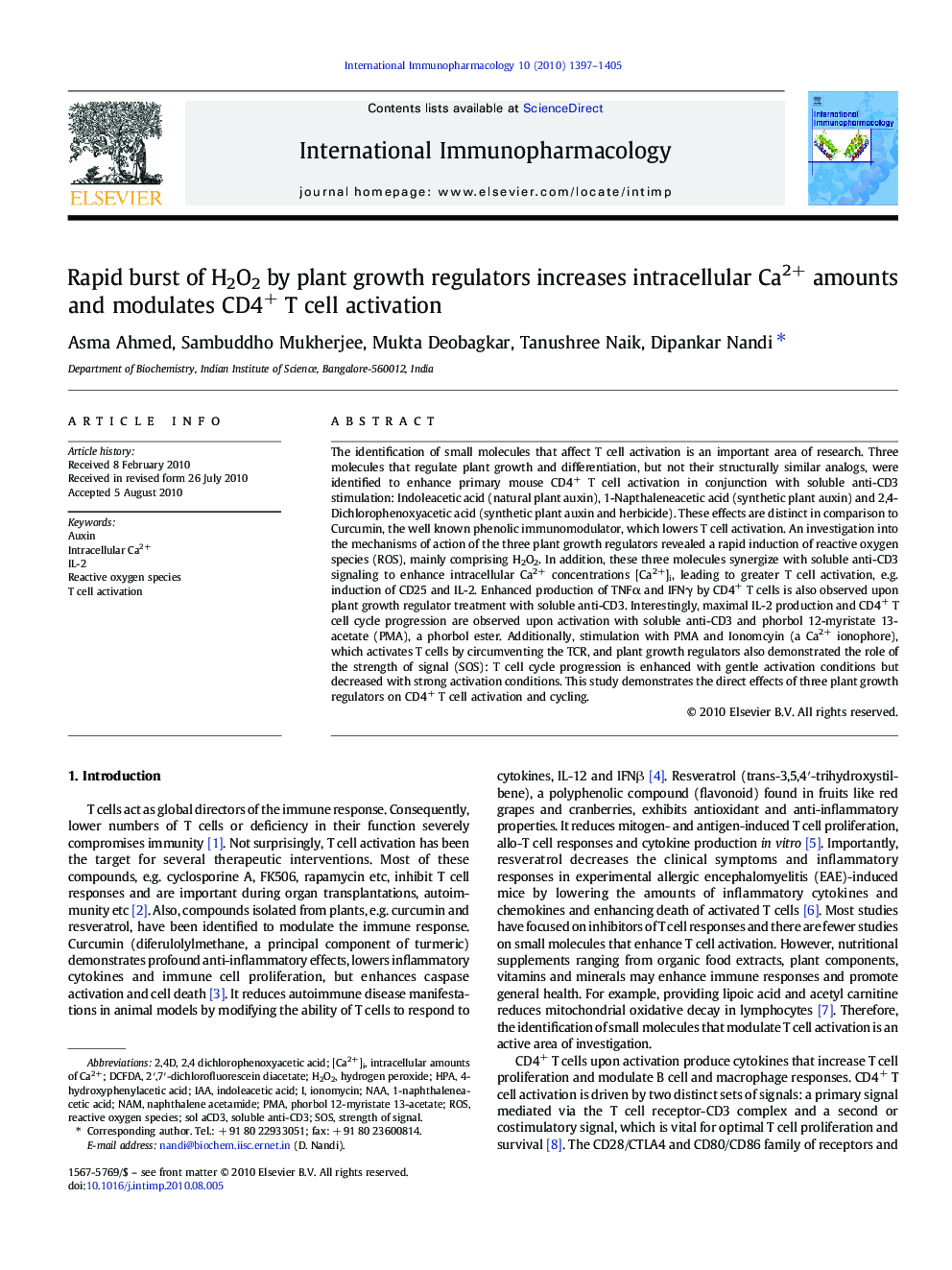| Article ID | Journal | Published Year | Pages | File Type |
|---|---|---|---|---|
| 2541153 | International Immunopharmacology | 2010 | 9 Pages |
The identification of small molecules that affect T cell activation is an important area of research. Three molecules that regulate plant growth and differentiation, but not their structurally similar analogs, were identified to enhance primary mouse CD4+ T cell activation in conjunction with soluble anti-CD3 stimulation: Indoleacetic acid (natural plant auxin), 1-Napthaleneacetic acid (synthetic plant auxin) and 2,4-Dichlorophenoxyacetic acid (synthetic plant auxin and herbicide). These effects are distinct in comparison to Curcumin, the well known phenolic immunomodulator, which lowers T cell activation. An investigation into the mechanisms of action of the three plant growth regulators revealed a rapid induction of reactive oxygen species (ROS), mainly comprising H2O2. In addition, these three molecules synergize with soluble anti-CD3 signaling to enhance intracellular Ca2+ concentrations [Ca2+]i, leading to greater T cell activation, e.g. induction of CD25 and IL-2. Enhanced production of TNFα and IFNγ by CD4+ T cells is also observed upon plant growth regulator treatment with soluble anti-CD3. Interestingly, maximal IL-2 production and CD4+ T cell cycle progression are observed upon activation with soluble anti-CD3 and phorbol 12-myristate 13-acetate (PMA), a phorbol ester. Additionally, stimulation with PMA and Ionomcyin (a Ca2+ ionophore), which activates T cells by circumventing the TCR, and plant growth regulators also demonstrated the role of the strength of signal (SOS): T cell cycle progression is enhanced with gentle activation conditions but decreased with strong activation conditions. This study demonstrates the direct effects of three plant growth regulators on CD4+ T cell activation and cycling.
Research highlights► Plant growth regulators (NAA, 2,4D & IAA) enhance CD4+ T cell activation by anti-CD3. ► NAA, 2,4D & IAA increase intracellular ROS and Ca2+ upon anti-CD3 stimulation. ► The rapid induction of ROS leads to rise in intracellular Ca2+. ► NAA, 2,4D & IAA modulate CD4+ T cell cycling depending on the strength of signal. ► NAA, 2,4D & IAA directly affect in vitro CD4+ T cell activation and cycling.
